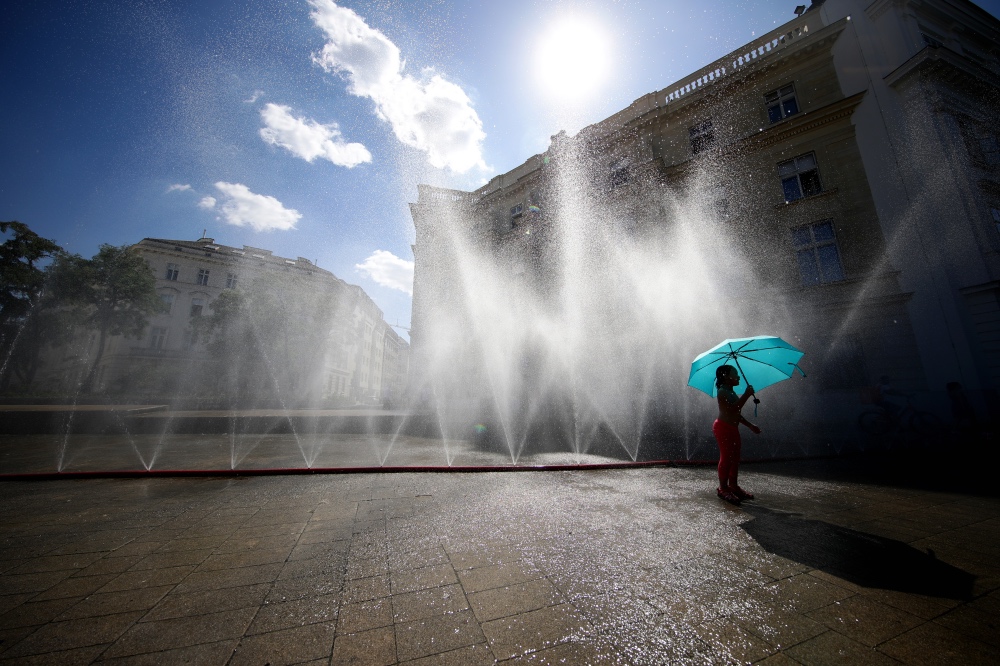Barcelona, Spain
Thomson Reuters Foundation
Global warming turbo-charged July’s record-breaking heatwave in Europe by 1.5 to three degrees Celsius, scientists said on Friday, adding that the intensity in some countries would have been “extremely unlikely” without climate change.
The heatwaves in France and the Netherlands last month would have had a chance of happening only once in 1,000 years in pre-industrial times, said a study by the World Weather Attribution group of scientists.

A girl with an umbrella stands under water sprinklers during a heat wave in Vienna, Austria, on 23rd July, 2019. PICTURE: Reuters/Lisi Niesner
In those two countries, the July heatwave was made about 100 times more likely due to climate change, the scientists said.
In Germany, it was about 50 times more likely and in Britain, where it only lasted one to two days, at least twice as likely.
The analysis, based on modelling and observed data, was produced by researchers with Oxford’s Environmental Change Institute and the Dutch, British and French meteorological services.
On Thursday, the World Meteorological Organization said July 2019 at least equalled, if not surpassed, the hottest month in recorded history globally – which was July 2016 – following the warmest ever June.
The planet is also headed for its hottest five successive years on record, UN Secretary-General Antonio Guterres said on Thursday.
“This year alone we have seen temperature records shatter from New Delhi to Anchorage – from Paris to Santiago – from Adelaide to the Arctic Circle,” he told journalists in New York.
“If we do not take action on climate change now, these extreme weather events are just the tip of the iceberg.”
Guterres has convened a climate summit in late September in New York, at which he wants governments to present stronger measures to tackle global warming such as preserving forests and protecting the poor from wild weather and rising seas.
In 2015, governments adopted the Paris Agreement to limit global warming to “well below” two degrees Celsius above pre-industrial times, and ideally to 1.5 degrees Celsius.
The world has already heated up by about one degree Celsius, mainly due to human activities that burn fossil fuels for energy.
Heatwaves are especially dangerous for older people more prone to heatstroke and other health problems, said Karsten Haustein, an ECI researcher.
In July, Paris saw temperatures hit 42.6 degrees Celsius, while Britain set a new daily record at 38.7 degrees Celsius.
Mortality rises during heatwaves, and while emergency heat action plans help reduce the risks, more substantial steps are needed, Haustein noted.
“Trees and white roofs are a fairly simple solution. Better insulated houses and in general more investments to safeguard infrastructure that is bound to fail at high temperatures are also critical,” he added in a statement.






